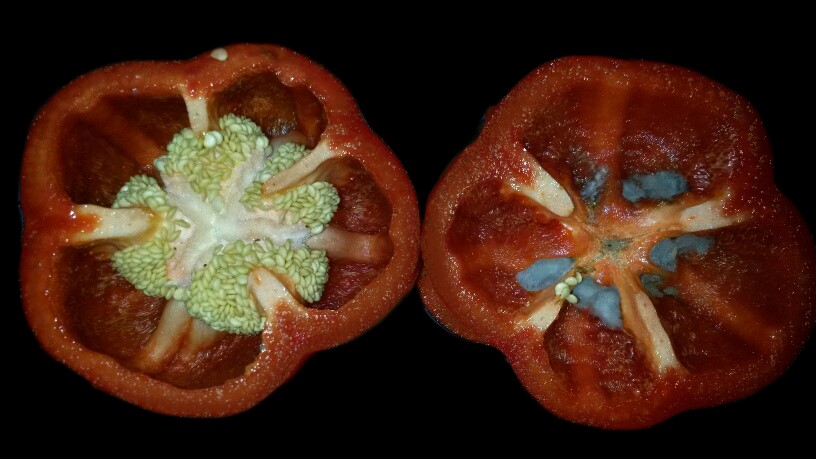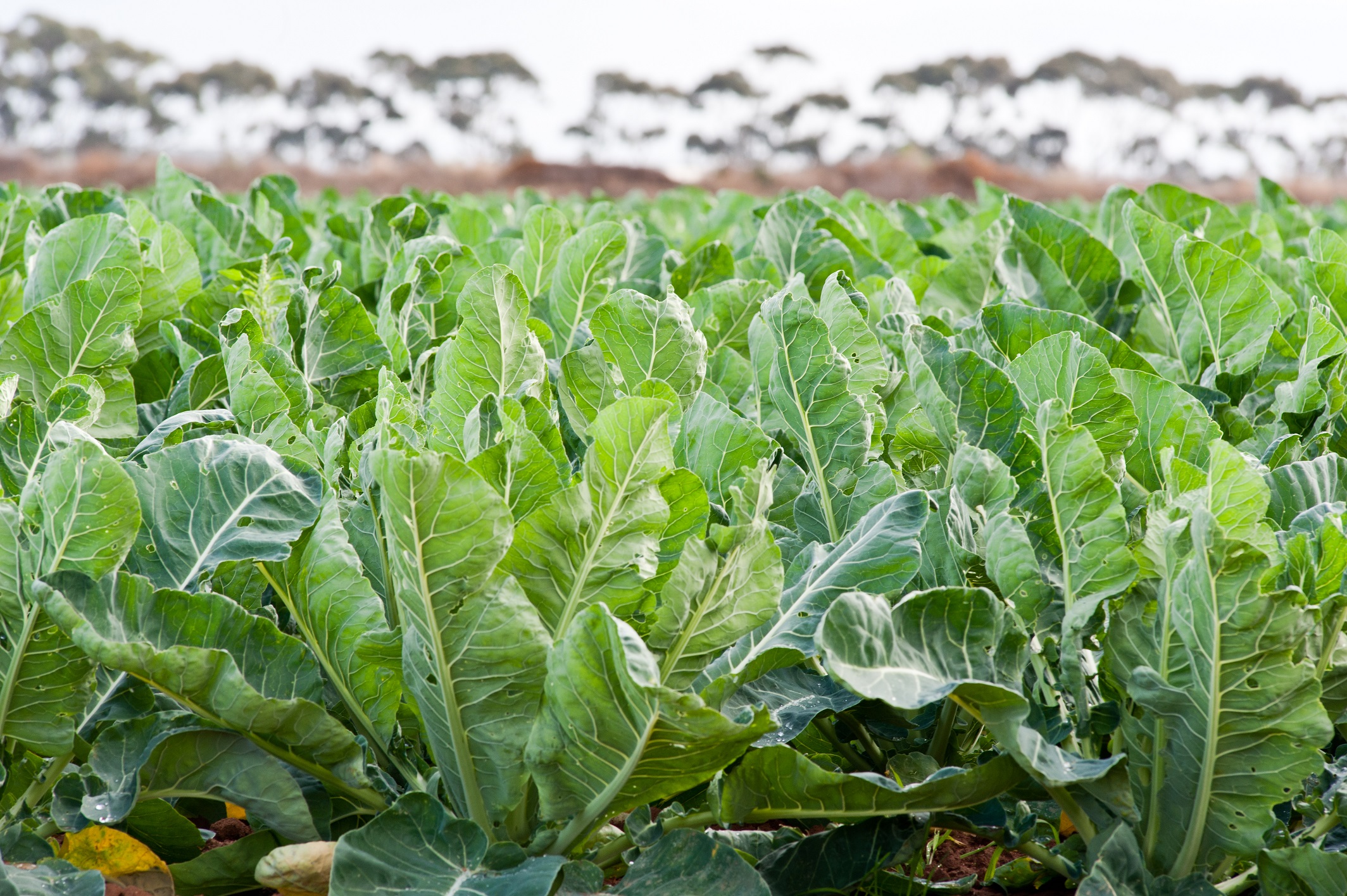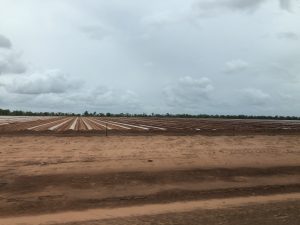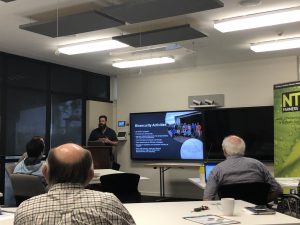
The Good Mood Food whole-of-horticulture campaign to support Australian growers
2 June 2020
Exploring the internal issues affecting capsicums
3 June 2020In Vegetables Australia – Winter 2020, AUSVEG Biosecurity Officer Madeleine Quirk provides an update on vegetable and potato biosecurity activities undertaken throughout the first half of this year, which ranged from in-person workshops to online webinars. AUSVEG is committed to providing Australia’s vegetable and potato producers with the most current biosecurity information.
Earlier this year, AUSVEG Biosecurity Coordinator Callum Fletcher and myself travelled to north to Queensland and the Northern Territory. We visited Bundaberg, Katherine and Darwin to meet growers and discuss current biosecurity threats.
Biosecurity team in Bundaberg, Queensland
In February 2020, we spent a week in Bundaberg where we engaged with vegetable growers and agronomists across the region about biosecurity threats, including tomato-potato psyllid (TPP), exotic leafminers and fall armyworm.
Later that week, Bundaberg Fruit & Vegetable Growers (BFVG) invited us to speak at the ‘Biosecurity and Beneficials Workshop’. The workshop brought together growers, agronomists, and industry supply chain to learn about:
- Key biosecurity threats such as TPP and exotic leafminers.
- Pest surveillance.
- Future management and preparedness.
- Property risk mitigation.
Travelling to the Top End
The following week, Callum and I travelled to Katherine to meet with NT Farmers Industry Liaison Officer Simone Cameron. Simone introduced the biosecurity team to several growers across the region and once again biosecurity threats such as fall armyworm, TPP and exotic leafminers were discussed. The group was also taken on a tour of the Katherine Research Station where they witnessed various research trials in action.
Later that week, NT Farmers invited us to present at the NT Farmers Research and Development Forum. Over the course of the day, protected cropping specialists delivered presentations on structure options for protected cropping, low-tech greenhouse structures, hydroponic nutrient requirements, and beneficial bugs and pollinators in protected cropping shade structures.
Biosecurity was another key theme of the event, with the Department of Primary Industry and Resources providing an update on the fall armyworm, a pest that has since been detected across Northern Territory and Queensland. We provided updates on key pests that may threaten the Northern Territory’s horticulture industry including TPP, brown marmorated stink bug, and exotic leafminers.
The event was designed to be as interactive as possible, with a Q&A following each presentation, and grow bags and insect pest specimens on display.
Connecting virtually
As travel restrictions are currently in place (at the time of writing) to combat COVID-19, the biosecurity team is focusing on different ways to engage with vegetable and potato growers across Australia. A key platform that has been used is the webinar platform. Two webinars of note included a Melbourne region-specific webinar and a Tasmania-specific webinar.
Both webinars were facilitated by the VegNET project, and incorporated several topics including plant biosecurity, pest surveillance, and environmental management. You can watch the webinar recordings on the AUSVEG website, or follow @biosecurityveg on Twitter to keep up-to-date about future webinars, including an upcoming one discussing pests and disease threats to Western Australia.
The team also continues to engage and connect with vegetable and potato growers through traditional and social media, along with regular phone calls and teleconferences. If your business requires biosecurity information, please contact Callum and myself by emailing science@ausveg.com.au.
Protecting our borders through community education
Australia’s horticulture industries implement measures to combat biosecurity. However, the general public has a role to play in reporting plant pests too.
To that end, the biosecurity team at AUSVEG, in conjunction with the Hurstbridge Community Hub and Agriculture Victoria, facilitated a pest and disease identification workshop at the Hurstbridge Community Hub in Melbourne.
The workshop was held in February this year, and it focused on raising awareness of potential insect pests among community gardeners. Participants learnt about how these biosecurity threats affect agriculture, amenity and the environment, and how communities can play their part by reporting suspect detections to the Exotic Plant Pest Hotline.
Presentations were given by AUSVEG and Agriculture Victoria, and highlighted pests such as TPP and Queensland fruit fly (Qfly), as well as spiders acting as beneficial insects in the garden. The presentations were followed by an interactive TPP and Qfly identification session.
These workshops aim to benefit Australia’s horticulture industry because they increase community-level understanding of biosecurity so that Australia’s horticulture industries, economy and amenity can be supported.
Find out more
Any unusual plant pest should be reported immediately to the relevant state or territory agriculture agency through the Exotic Plant Pest Hotline (1800 084 881).
For further information, contact AUSVEG Biosecurity Officer Madeleine Quirk on 03 9882 0277 or madeleine.quirk@ausveg.com.au. The Farm Biosecurity Program is funded by the Plant Health Levy.
This article first appeared in the winter 2020 edition of Vegetables Australia. Click here to read the full publication.



